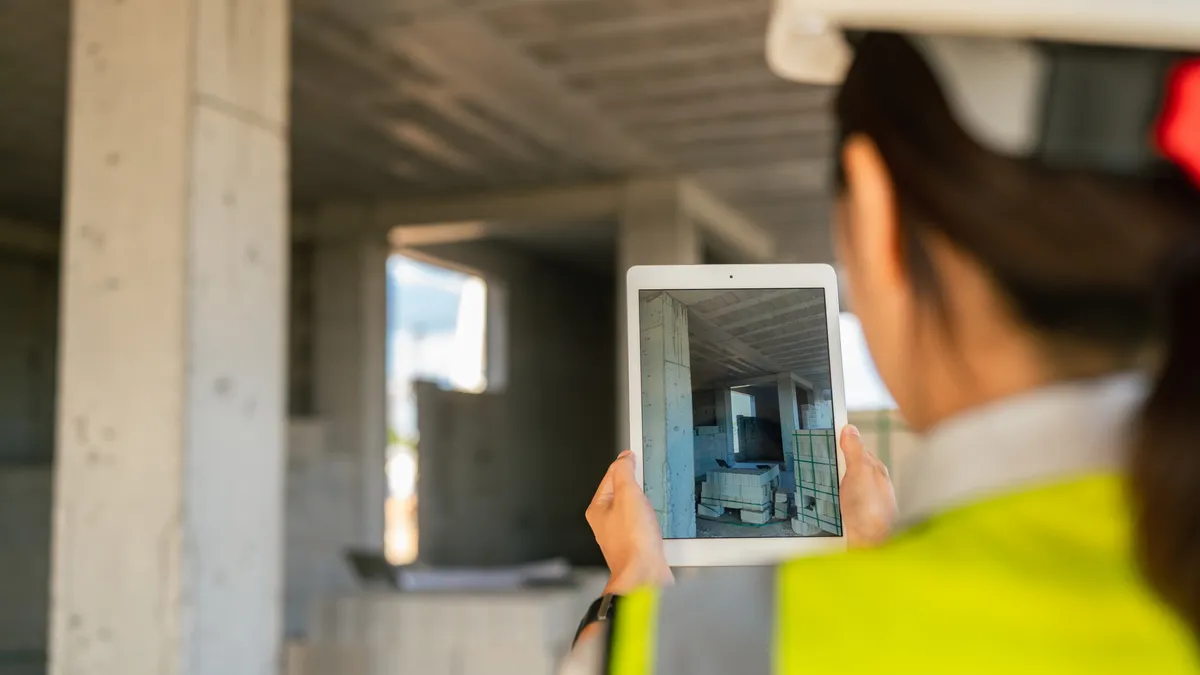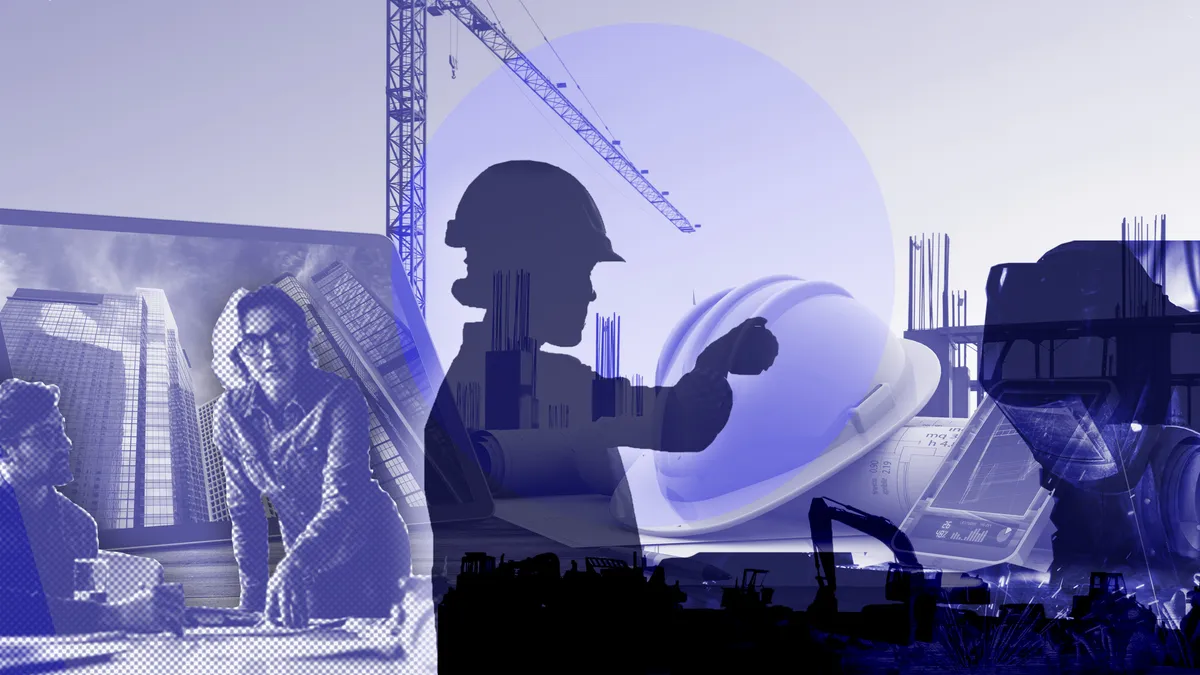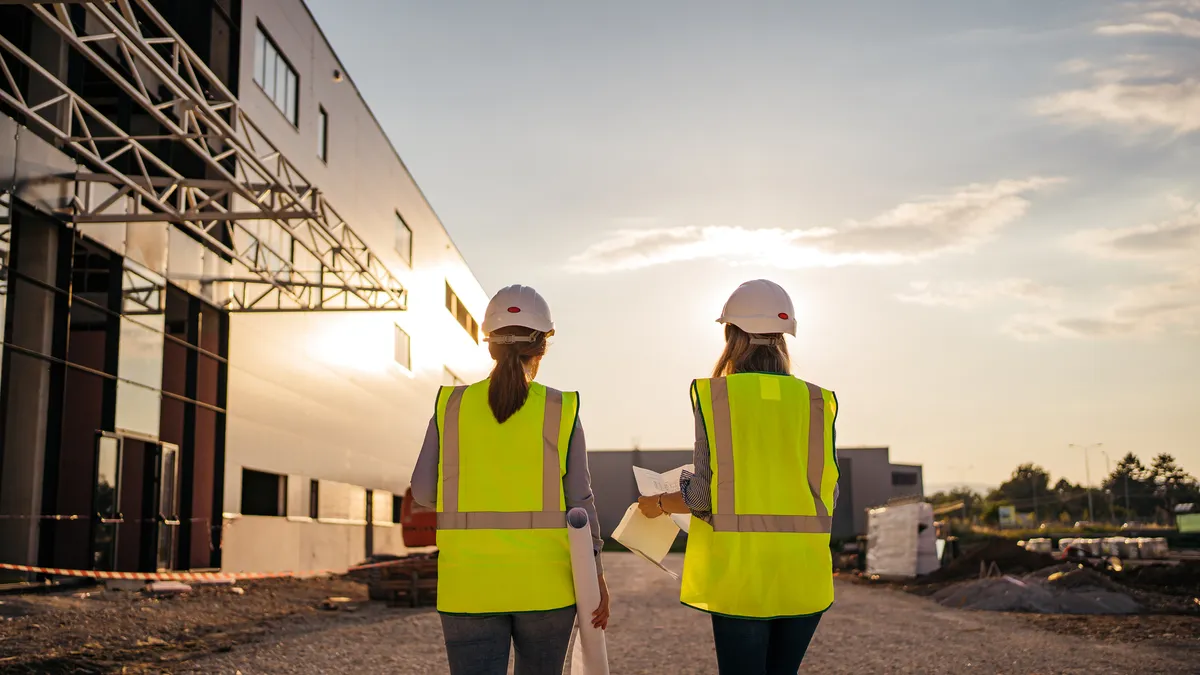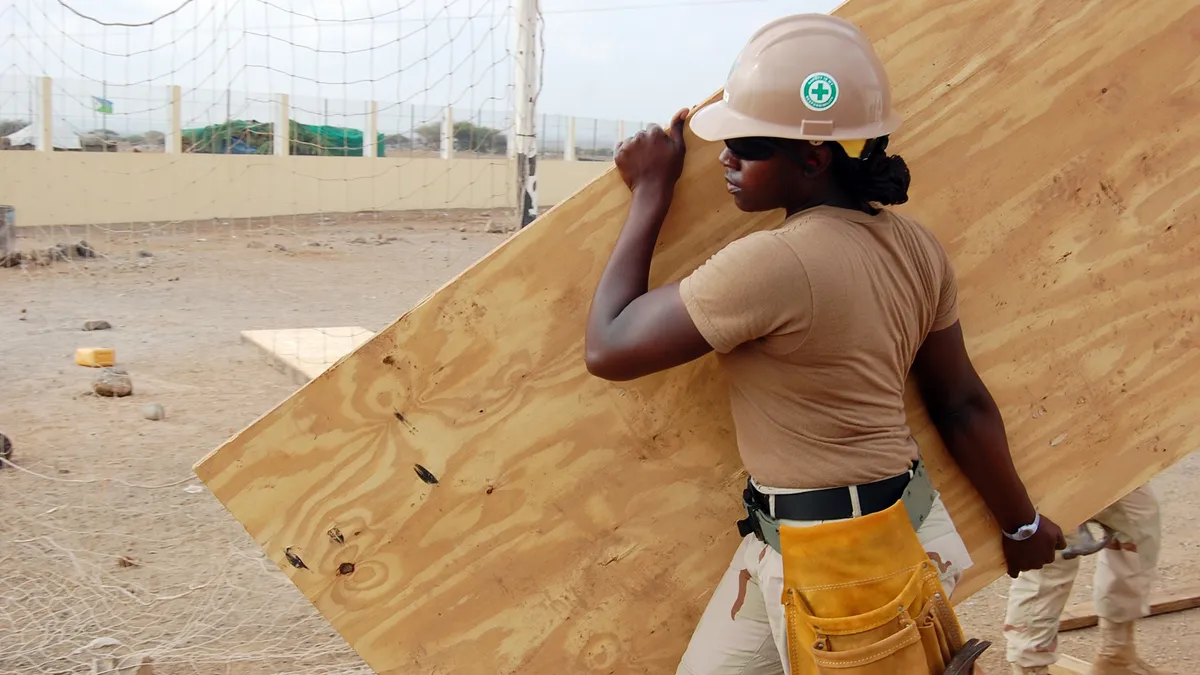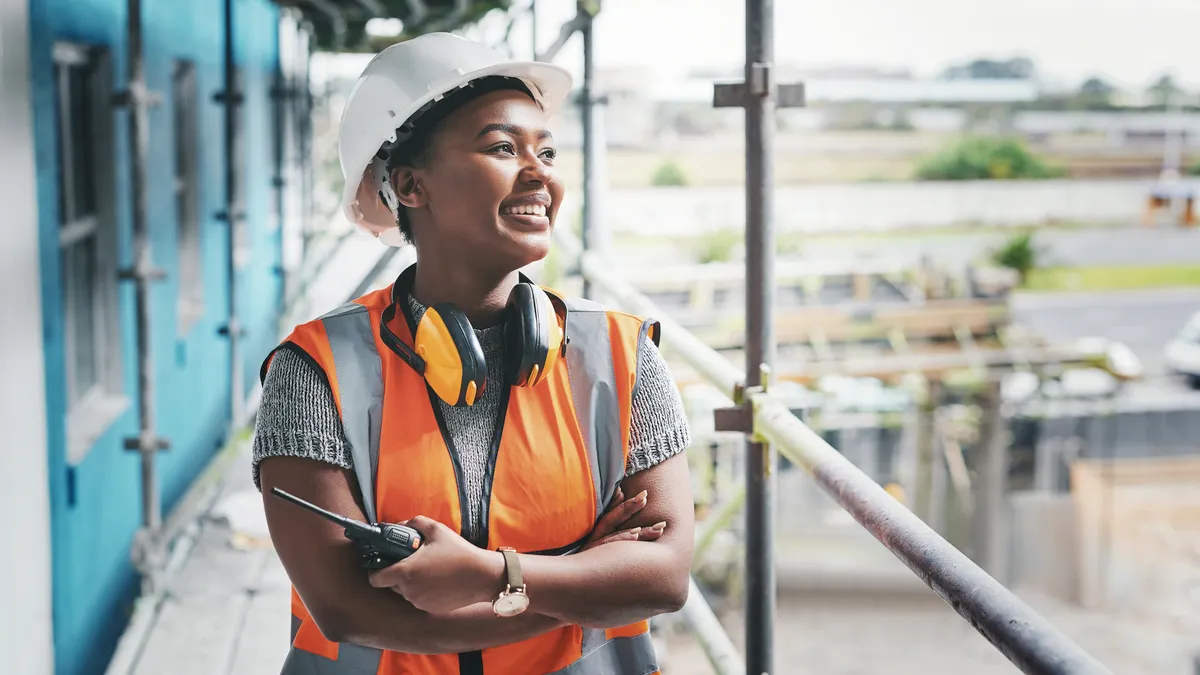Women in Construction Tech, an international organization dedicated to bringing more women into the contech space, started with 10 seats around a table at a coffee shop in San Francisco in 2021. Five of them were empty.
Antonia Elisa Soler Blasco, the director of Hilti North America’s technology office, was among the women who filled the other five chairs for a meet up about the industry. The open seats, Soler Blasco told Construction Dive, started a conversation — how could they fill the empty spots?
“We looked at the table and we said, ‘Well, we want to fill all the seats right? We want to grow this,’” Soler Blasco told Construction Dive. “We would like to see more women in construction tech, in venture capital.”
Soler Blasco, along with co-founder Julieta Moradei, partner at venture capital firm Hometeam Ventures, then set to work, building out the organization and growing its reach.
Currently, the organization has 100 members, with local chapters in San Francisco, New York, Boston, Madrid and Latin America, composed of members from Guatemala and Mexico. Participants range from construction workers and executives, to women in venture capital to women running startups and contech firms.
Barriers to entry
The path for women in tech isn’t easy. Overall, structural and social barriers make it difficult for women to advance in tech-related fields. In technical roles, only 52 women are promoted for every 100 men that are, according to consulting firm McKinsey. This is a far more pronounced gap than for the workforce at large, where only 86 women are promoted for every 100 men.
“By failing to promote and retain women in technical roles who are in the early stages of their careers, companies end up preparing fewer women for senior roles,” the report stated. “This affects women’s lives and livelihoods and could create negative financial and cultural consequences for companies, since companies where women are well represented at the top earn up to 50 percent higher profits and share performance.”
Soler Blasco said that women in the industry were no strangers to these barriers.
“We see them in venture capital. We see them in construction. And we see them in tech. So when we bring all that together, those barriers are still there,” Soler Blasco said.
Getting started
It’s an area Women in Construction Tech aims to address.
A key development came for the organization at Chicago-based BuiltWorlds’ Venture West conference, in Palo Alto, California in March 2022. Soler Blasco put together a free event for women in construction tech. She said 80 people signed up, and 50 people attended.
“It was a huge success. We got great feedback,” Soler Blasco said.
They repeated the process at BuiltWorlds events in Paris and Chicago, and always attempted to have a sponsor, in order to make the panel free to attend. The removal of the cost barrier was important, Soler Blasco said, in order to allow women from all different segments of the contech chain to attend. With cost being a barrier, sometimes only senior women could attend, and she wanted to make it so anyone, at any point in their careers, could take part.
“What we wanted to do is to make sure that everyone, wherever the level they are at, even if they are starting in their career, if they are in the middle of their career, or if they are already successful executives, has an opportunity to network together and to be exposed to this,” Soler Blasco said.
Tradeswomen in contech
In construction specifically, the trades see large gender barriers — in 2022, 14% of all construction workers were women, per an analysis of Bureau of Labor Statistics data. In the office, project executive positions are trending in a positive fashion, Soler Blasco said, but there still aren't many women.
However, with the advent of robotics, which can address jobsite issues related to human strength limitations or physical weariness, which can be helpful for women as well as older workers, the number of women in the trades may increase, Soler Blasco theorized.
Soler Blasco said she was lucky — working in the Bay Area and having men as allies who help push for change, such as when panels on contech don’t feature women.
“There are people who want to see this being different, but it's still not the norm. There’s still work to do,” she said.



